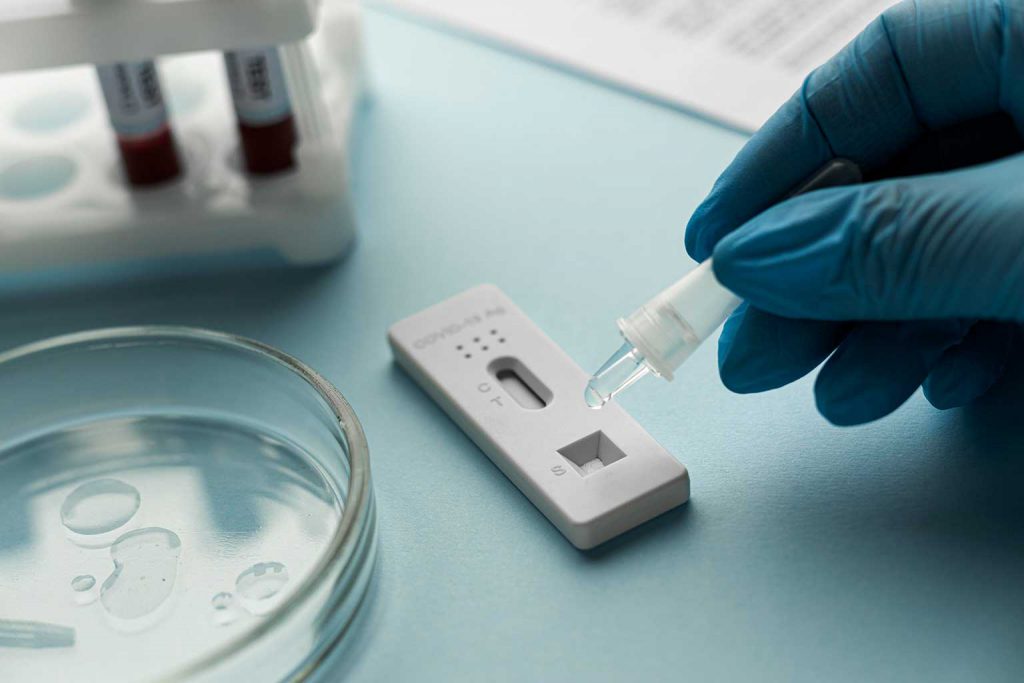It is undeniable that there are many kinds of COVID-19 tests that are available to the public.
So, what are the different kinds of tests available to them and how people who need testing should choose?
In this blog post, we are going to answer this question which is one of the most popular questions when it comes to COVID-19 tests.
There are three categories of testing which are demonstrated as follows:
1. NAAT test (PCR test)
This test is to identify whether the actual COVID genetic material exists. It’s the PCR testing where you would have a nasal pharyngeal swab or a pharyngeal swab token. Then they look for the genetic material of the virus itself.
The NAAT testing that tests the nucleic acid of the virus itself are the most sensitive ones. To complete the testing process, they need to be done in quite a sophisticated laboratory setting. That’s why the turnaround time for these tests can take several days.
If there’s an outbreak and there are lots of samples, it will take several days longer than we would want to or hope for.
2. Antigen test
The second type of testing is when they try to identify one of the outer proteins of the viral shell or envelope. The antigen testing that exists now in the market are what we call the antigen rapid diagnostic tests. Those look for the antigen on the outer surface of the virus itself. Those have been developed in a way that they can be done at the bedside or in the field so they do not need the sophisticated laboratory setting to conduct them. They are not as accurate as the PCR testing but they have a very important value as one of the tools to address the COVID pandemic

3. Antibody test
The third type is to detect within the human body whether they have developed antibodies. So, it looks for antibodies that are specific to the outer portion of the virus itself. So, it shows whether the individual has mounted an immune response or developed immunity towards COVID-19.
What are antigens and antibodies?
The antigens are the proteins that exist on the outer shell of the virus itself. So, it’s part of the virus itself.
Antibodies are produced by the human body against those specific antigens.
Value of Getting Tested
The first aspect is to identify whether a person has the disease or not. This is important to be able to provide therapy treatment but also to specify who do we need to go and test further of the contacts of that specific person. So that’s a big value to address the pandemic.
When the value of the antibody testing is discussed, they become very important to know whether the person was exposed in the past. Understanding the immunity of the population is done through antibody testing


